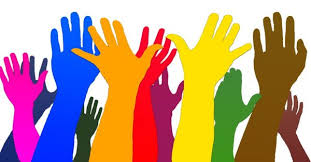India, often described as a “melting pot” of cultures, languages, and religions, is a land of unparalleled diversity. Yet, amidst this diversity lies a common thread that binds the nation together – the spirit of unity and harmony. In a country as vast and varied as India, the need to embrace harmony and unity is not just a choice, but a necessity for its progress and prosperity. This blog post delves into the reasons why fostering harmony and unity is imperative for India’s growth and well-being.
Strength in Diversity:
India’s cultural mosaic is a source of unparalleled strength. Embracing harmony allows the nation to harness the power of its diverse communities, languages, and traditions. When people from various backgrounds unite, they bring a multitude of skills, perspectives, and ideas to the table, fostering innovation and creativity. This diversity serves as a foundation for progress in various fields, from technology and science to art and literature.
Social Cohesion and Stability:
Harmony and unity are essential for maintaining social cohesion and stability. When people coexist peacefully and respect one another’s differences, tensions are reduced, and the risk of conflicts diminishes. This creates an environment conducive to economic growth, investment, and development, as both domestic and international stakeholders are more likely to engage in a stable and harmonious society.
Economic Prosperity:
A united and harmonious society is better positioned to attract investments, both domestic and foreign. Businesses thrive in an environment where there is social stability and a lack of communal discord. A harmonious nation can effectively utilize its resources, enhance its infrastructure, and create an atmosphere that encourages entrepreneurship and economic prosperity for all its citizens.
Cultural Enrichment:
Embracing unity encourages the sharing and preservation of cultural heritage. When people from different backgrounds come together, they exchange traditions, stories, and experiences. This enriches the collective cultural tapestry of the nation, making it a hub of diverse artistic expressions, languages, and customs. The celebration of various festivals and practices fosters a sense of belonging and pride among citizens.
Tolerance and Empathy:
Harmony and unity promote tolerance and empathy, which are crucial for social progress. When people interact with and understand others who are different from them, biases and prejudices are gradually eroded. This leads to a more inclusive society where everyone’s rights and perspectives are respected, paving the way for a fair and just nation.
Global Standing:
On the international stage, a united and harmonious India commands greater respect and influence. A nation that upholds the values of unity and peaceful coexistence is more likely to engage constructively with other nations, foster diplomatic relationships, and play a pivotal role in global affairs.
Resilience in Challenging Times:
During times of crisis, whether natural disasters or pandemics, a united society is better equipped to respond effectively. Cooperation and solidarity among citizens facilitate the distribution of resources, aid, and support to those in need. A sense of togetherness bolsters resilience and ensures that the nation can weather challenges with strength and determination.
Challenges of Unity in Diversity

Unity in diversity is a concept that celebrates the differences and similarities among people, cultures, religions, languages, regions, etc. It is a principle that promotes harmony and cooperation among diverse groups and individuals.
However, unity in diversity also poses some challenges that need to be addressed and overcome. Some of these challenges are:
- Social tensions: Diversity can sometimes lead to conflicts, misunderstandings, discrimination, or violence among different groups or communities. This can affect the social cohesion and stability of a country or region.
- Corruption and illiteracy: Diversity can also create gaps in the development and quality of life of different areas or sections of the society. Some regions or groups may face issues such as corruption, illiteracy, poverty, lack of infrastructure, etc., while others may enjoy better opportunities and resources.
- Lack of coherence and identity: Diversity can also challenge the sense of unity and identity of a nation or a group. It can be difficult to find a common ground or a shared vision among diverse people with different backgrounds, beliefs, values, interests, etc. This can affect the integration and participation of different groups in the national or global affairs.
To overcome these challenges, it is important to adopt an integrative approach that respects and values diversity while fostering unity and solidarity. Some of the ways to achieve this are:
- Education and awareness: Education is a key tool to promote intercultural understanding and appreciation among diverse people. It can help to reduce stereotypes, prejudices, and biases, and to increase knowledge and empathy. It can also help to empower people with skills and competencies to deal with diversity in a positive and constructive way.
- Dialogue and communication: Dialogue and communication are essential to build trust and cooperation among diverse groups and individuals. They can help to resolve conflicts, address grievances, share perspectives, exchange ideas, and find solutions. They can also help to create a culture of mutual respect and tolerance.
- Inclusion and participation: Inclusion and participation are important to ensure that diversity is not only recognized but also valued and utilized. They can help to create a sense of belonging and ownership among diverse people, and to ensure that their voices and needs are heard and represented. They can also help to foster innovation and creativity by tapping into the diverse talents and potentials of different groups.

Conclusion
As India strides forward on its journey of progress and development, embracing harmony and unity becomes not just a desirable aspiration, but an essential pillar of its success. The remarkable diversity that defines the nation’s identity can truly flourish when people unite with a shared sense of purpose and respect for one another.
By recognizing the importance of harmony, India can create a brighter future for its citizens, characterized by prosperity, cultural enrichment, and a strong sense of community. The path to progress is paved with the values of unity, reminding us that when diverse voices come together, they create a symphony of collective achievement.
Recognizing the significance of fostering goodwill and amity among its citizens, India celebrates Sadbhavana Diwas, also known as Harmony Day, on August 20th each year. This observance is a heartfelt tribute to the principles of peace, love, and fraternity that have been at the core of India’s ethos for centuries. Sadbhavana Diwas serves as a timely reminder of the power of unity and the importance of working together for the greater good.
So let us all take a pledge that from this Sadbhavna Diwas, adopt unity and harmony for the progress of India. I hope I have given you some useful information on this topic. If you have any further questions, please feel free to leave them below. Thank you for reading! 😊






